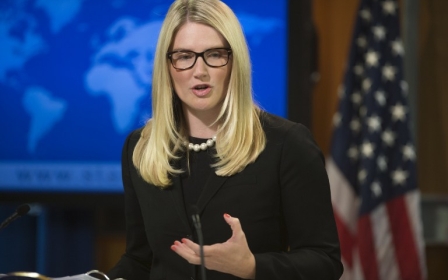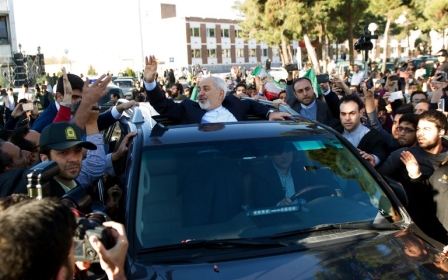Russia lifts ban on delivery of S-300 missile system to Iran

Russian President Vladimir Putin has lifted a ban on the delivery of S-300 anti-missile systems to Iran, the Kremlin's press office said on Monday.
The batteries are advanced ground-to-air weapons that can take out aircraft or guided missiles.
The presidential decree would now allow Moscow to deliver the missile system to Iran through Russian territory or outside of it, via its airplanes or ships.
The ban, introduced by former President Dmitry Medvedev in 2010, was put in place reportedly following lobbying from Israel.
According to an American intelligence source, Israeli Prime Minister Benjamin Netanyahu personally travelled to Moscow on a private jet to persuade Russia to halt the delivery in 2013.
Russia had also been pressured by the West not to send the advanced missile system to Iran while Tehran was under UN sanctions over its nuclear programme.
However, Iran and world powers have reached a framework agreement that could see the gradual lifting of sanctions if a deal is eventually signed.
The contract itself, worth $800 million, was signed with Iran in 2007 and Tehran had sought legal action against the Russian arms dealer Rosoboronexport at a Geneva arbitration tribunal, but the $4 billion lawsuit remains unsettled.
In February, Russia had offered to sell Iran Antey-2500 anti-aircraft and ballistic missile system instead of the older S-300 system, an offer that Tehran said it was still considering.
The US military, meanwhile, expressed concern on Monday after Russia lifted the ban.
"Our opposition to these sales is long and public. We believe it's unhelpful," Pentagon spokesman Colonel Steve Warren told reporters.
Israel on Monday denounced Russia's decision to lift the ban.
"This is a direct result of the legitimacy that Iran is receiving from the nuclear deal that is being prepared, and proof that the Iranian economic growth which follows the lifting of sanctions will be exploited for arming itself and not for the welfare of the Iranian people," Israeli Intelligence Minister Yuval Steinitz said in a statement.
"As Iran disavows clause after clause of the framework agreement... the international community has already begun implementing easing measures," he railed.
"Instead of demanding that Iran stop its terrorist activity in the Middle East and the world, it is being allowed to arm itself with advanced weaponry that will only increase its aggression."
Stay informed with MEE's newsletters
Sign up to get the latest alerts, insights and analysis, starting with Turkey Unpacked
Middle East Eye delivers independent and unrivalled coverage and analysis of the Middle East, North Africa and beyond. To learn more about republishing this content and the associated fees, please fill out this form. More about MEE can be found here.




